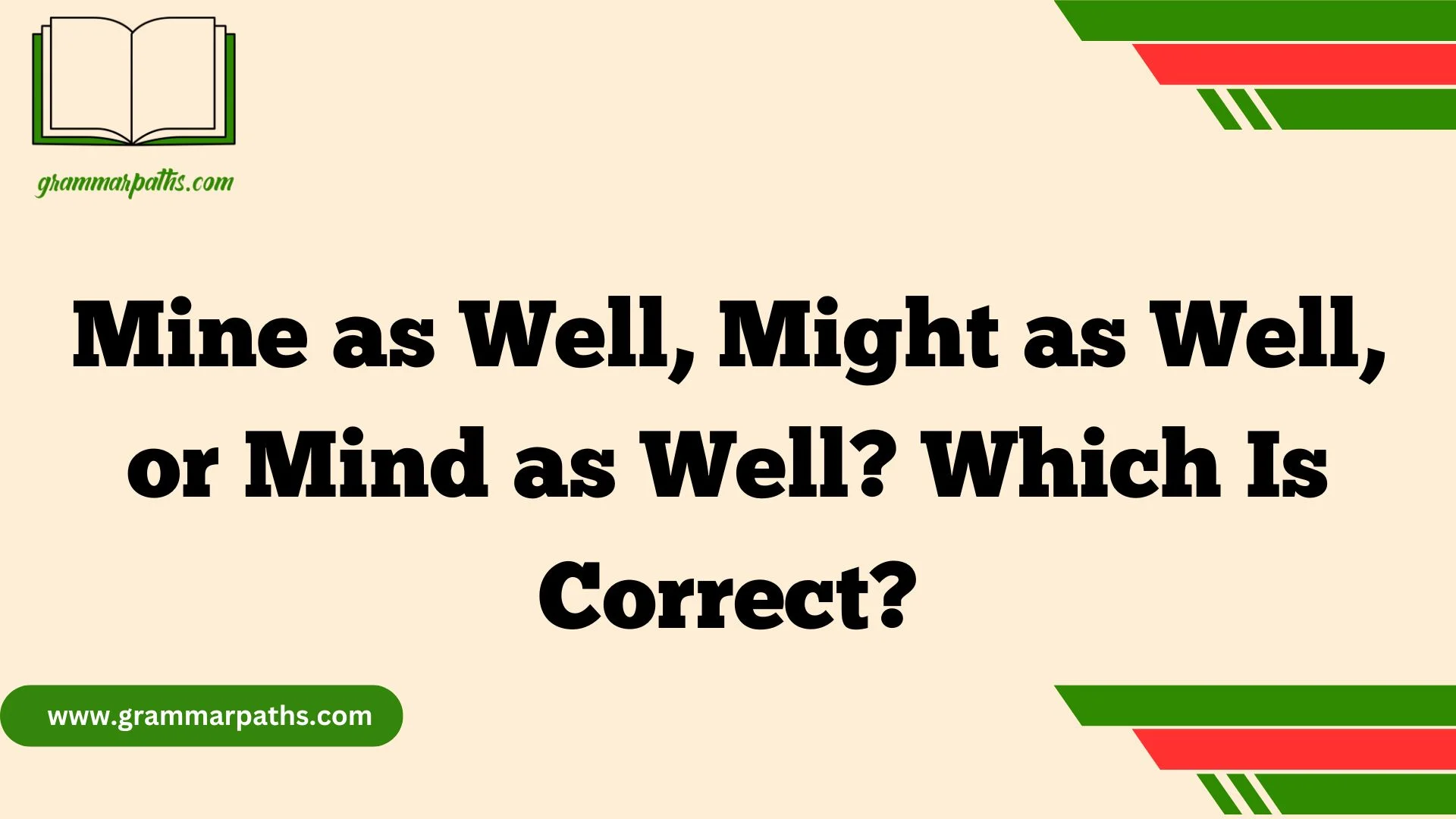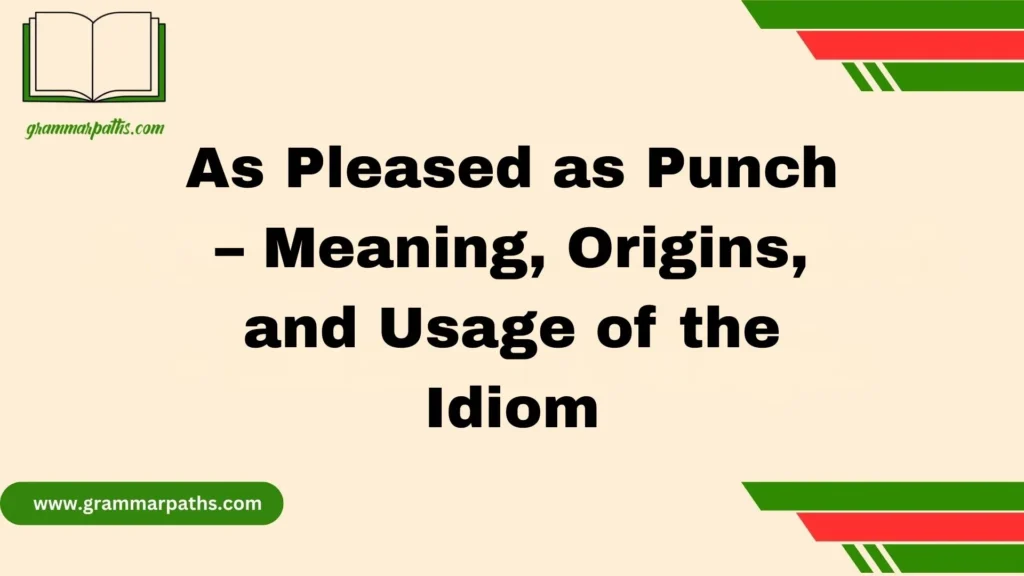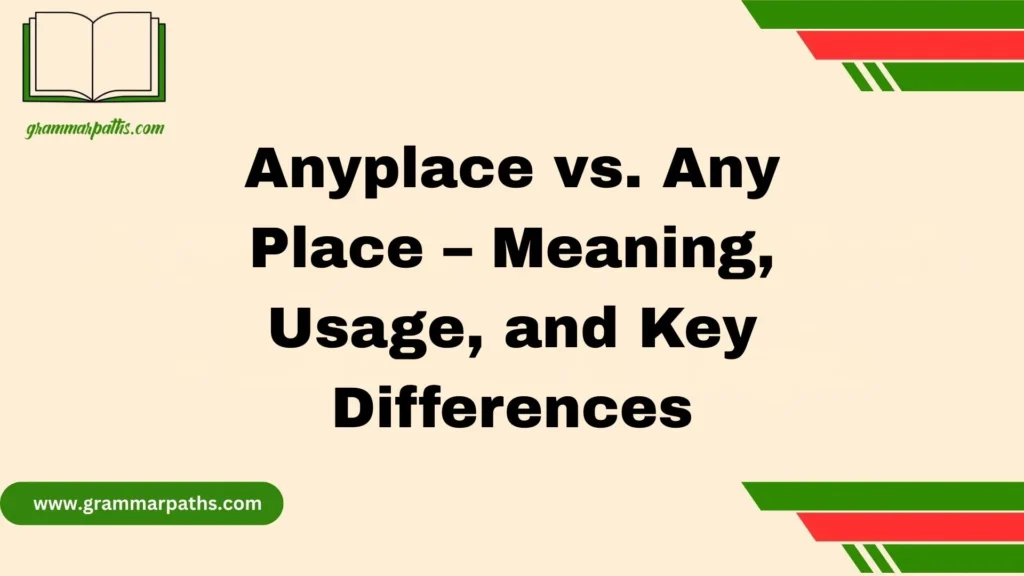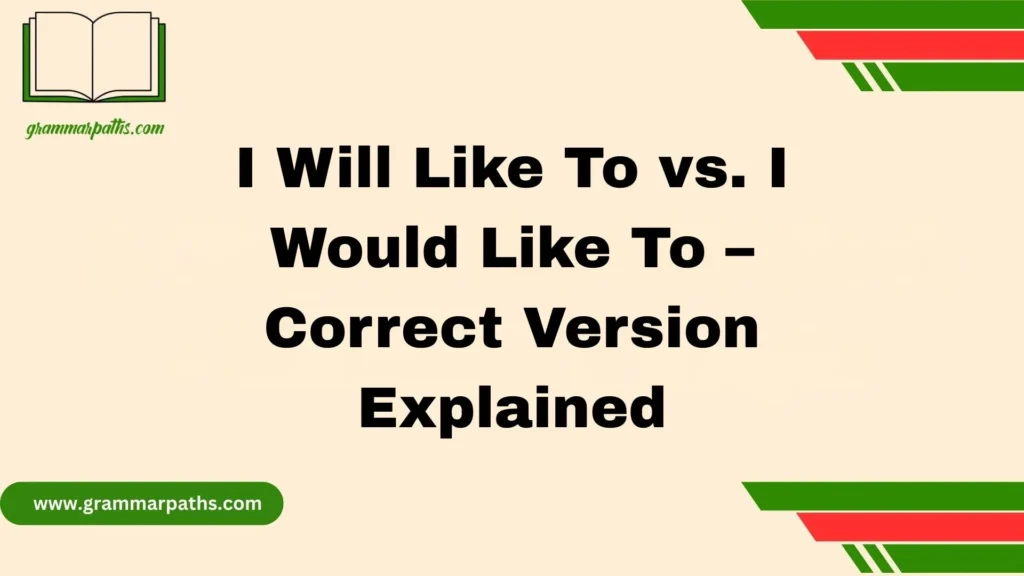In everyday conversation, I often hear people say “mine as well” when they really mean “might as well.” As someone who teaches English, I’ve seen even native speakers get confused by these similar–sounding phrases. The sound of the words can blur together, especially in fast-paced speech, leading to confusion and mistaken usage. It’s the kind of mistake that advanced learners and even fluent speakers can make, especially during casual conversations or chatting. But knowing the correct expression makes a big difference when you’re trying to communicate with precision and clarity.
When people say “mine as well”, it often happens in a situation where there’s a feeling of resignation or acceptance, like when someone’s late to a meeting and decides to stop for coffee—they might say, “I might as well grab a cup.” That’s the right phrase, the one that is grammatically correct, widely accepted, and fits the tone of both formal and informal settings. The other versions—“mine as well” or “mind as well”—are incorrect, misheard, or just mixed-up idioms. These are often used due to auditory similarity, especially in spoken English, and they don’t carry the same meanings or grammar rules.
The truth is, this small detail in language can indicate a lot about your understanding of correct use. It’s not just about choosing one expression over another—it’s about recognizing the subtle differences that help you distinguish a proper phrase from one that might confuse the listener. In my experience, the best way to avoid this kind of mistake is to build awareness of how phrases sound in context.
Teaching others to recognize the classic homophones, pay attention to tone, and understand the intent behind a sentence can really change the way you speak. Whether it’s a formal message or a casual chat, learning to pick the right phrase helps you communicate more confidently and avoid the awkwardness that comes from a simple wrong turn in word choice.
What Does “Might as Well” Mean?
“Might as well” is the only grammatically correct and widely accepted expression among the three. It’s an idiomatic phrase used to suggest:
- A recommendation or suggestion
- A resigned acceptance of a situation
- The best or most reasonable option available
It often reflects indifference or practicality.
Common Examples
- “We’re already here—we might as well go inside.”
- “Since it’s raining, we might as well stay in.”
- “There’s nothing on TV. Might as well read a book.”
In all these examples, the phrase means there’s no strong reason not to do something. It’s about going with the flow.
Why People Confuse the Phrases
These expressions often get misheard and miswritten due to their phonetic similarity, especially in casual speech.
- “Might as well” is spoken quickly and can sound like “mine as well” or “mind as well.”
- Slurred or regional pronunciations make it hard to distinguish.
- People unfamiliar with the written form of the phrase type it how it sounds, not how it’s meant.
Let’s Break Down the Phrases
“Mine as Well” — Is It Ever Correct?
Technically, yes, but only in specific contexts that have nothing to do with suggestions or idioms.
“Mine as well” uses “mine” as a possessive pronoun, meaning something that belongs to me, followed by “as well”, which means also.
Example Where It Is Correct:
- “You brought your umbrella? I brought mine as well.”
Here, “mine as well” = my umbrella, too.
Why It’s Often Wrong
When people say:
- “I mine as well go,”
They’re trying to express “might as well,” but mistakenly write “mine.”
✅ Correct Alternative:
- “I might as well go.”
“Mind as Well” — Is It Ever Correct?
No. Never. Not in modern English grammar.
The phrase “mind as well” makes no grammatical or semantic sense in standard usage.
❌ Incorrect:
- “You mind as well come.”
✅ Correct:
- “You might as well come.”
Why It’s a Mistake
- Confused pronunciation of “might” as “mind.”
- No logic for placing “mind” as a verb or noun in this context.
- There’s no idiomatic or grammatical structure that supports it.
How to Tell Which Phrase to Use
Here’s a simple breakdown to help:
| Phrase | Correct? | Meaning | When to Use |
| Might as well | ✅ Yes | Suggests a course of action or resignation | “We might as well leave now.” |
| Mine as well | ⚠️ Sometimes | Possessive usage: Mine, too | “You have tickets? I have mine as well.” |
| Mind as well | ❌ No | Not grammatically correct | Don’t use it—there’s no correct context |
How “Might as Well” Is Used in Real Life
In Casual Speech
- “There’s nothing to do. Might as well take a nap.”
- “We missed the bus. Might as well walk.”
In Professional Contexts
- “We’ve invested this much, so we might as well continue.”
- “The team’s here already. Might as well start the meeting.”
In Literature & Media
“If we’re all going to die, we might as well enjoy what time we’ve got.”
— The Hunger Games, Suzanne Collins
Real-World Case Study: A Common Email Mistake
Situation:
An HR rep sends a message:
“You mine as well send over your updated resume.”
How it was perceived:
- The recipient questioned the rep’s professionalism.
- It caused confusion and led to a follow-up clarification.
Corrected:
“You might as well send over your updated resume.”
This shows how one word mistake can shift tone and clarity, especially in writing.
Quick Memory Hacks
🧠 Think “Might” = Possibility or Suggestion
- If you’re suggesting something, always use “might as well.”
- Avoid “mind” unless talking about thinking or caring.
- Use “mine as well” only when referring to something you possess.
🔁 Replace the Phrase
Try replacing it with “could just as easily” or “may as well”:
- If the meaning holds, you should be using might as well.
“We might as well go now.”
✅ “We could just as easily go now.”
Top 5 Synonyms and Alternatives to “Might as Well”
| Alternative Phrase | Meaning/Usage |
| May as well | Slightly more formal alternative |
| Could just as easily | Highlights lack of a better option |
| Might be better to | Implies possible benefit |
| Nothing better to do | Casual, self-deprecating tone |
| Might not hurt to | Suggests something low-risk or worth trying |
Frequently Asked Questions
Is it correct to say “might as well”?
Yes, it’s grammatically correct to say “might as well.” It’s a common expression used to suggest doing something because there’s no better option or nothing to lose. For example, “It’s raining, so we might as well stay in.”
What is the difference between might and might well?
“Might” expresses a possibility, while “might well” adds a bit more certainty or likelihood. Saying “He might come” sounds uncertain, while “He might well come” suggests it’s actually quite likely he’ll come.
How do you use as well as correctly?
“As well as” means “in addition to” and is often used to connect two similar ideas. For example: “She plays the piano as well as the violin.” The verb form usually agrees with the first subject.
What is the difference between mine and mind?
“Mine” is a possessive pronoun (e.g., “This book is mine”), while “mind” is a noun or verb related to thinking or attention (e.g., “Change your mind” or “Do you mind?”). They serve completely different roles in sentences.
Is as well as grammatically correct?
Yes, “as well as” is grammatically correct. It’s used to link ideas, similar to “and,” but it doesn’t always work the same grammatically. Always make sure the verb agrees with the main subject, not the phrase after “as well as.”
Conclusion:
In conclusion, while “Mine as well” and “Mind as well” might sound like valid phrases in everyday speech, they are actually grammatical mistakes. The correct and widely accepted expression is “Might as well,” which is used to suggest doing something because there’s little reason not to. Understanding the difference between these phrases is important for clear and accurate communication, especially in formal writing or professional settings.
Remember, “Might as well” is an idiom that conveys logic, ease, or inevitability—something you do when there’s no better alternative. On the other hand, “Mine as well” and “Mind as well” are simply common misinterpretations with no place in standard English. By recognizing and using the right phrase, you can improve both your spoken and written communication.

Emma Brooke is a passionate language expert and contributor at GrammarPaths.com, where she helps learners navigate the complexities of English grammar, idioms, and effective writing. With a strong academic background and years of teaching experience, Emma excels at turning tricky grammar rules into simple, practical lessons that readers can easily grasp.












